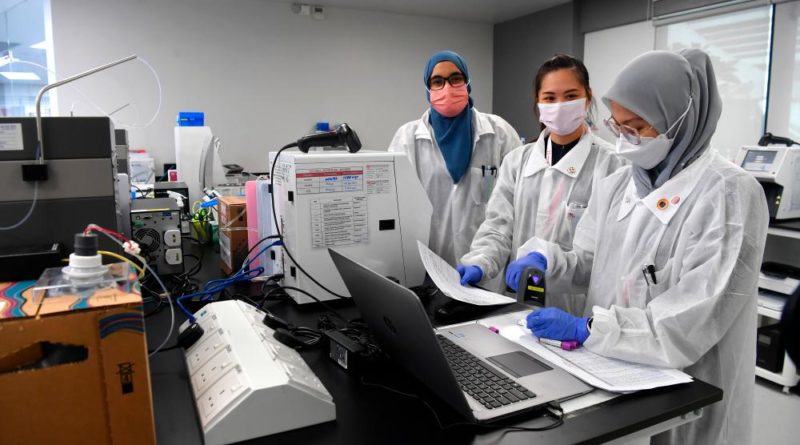HEADLINE | Lab-grown meat to make debut in Malaysia
Saliza said lab-grown meat has the potential to revolutionise the global food industry and meet growing demands for protein while minimising impact on the environment: Pix for representational purposes – BERNAMAPIX
.
.

PETALING JAYA: With food security a major issue globally and in Malaysia, the country will see its first lab-grown food manufacturing plant beginning operations next year.
A wholly-owned Malaysian company, Cell AgriTech Sdn Bhd, is set to introduce its manufactured seafood offerings first, followed closely by beef, pork, chicken and other meats at its pioneer production facility in Penang.
Its vice-president Jason Ng said the firm’s RM20 million investment will reshape the nation’s sources of protein while putting Penang on the map as a world leader in cultured meat production.
“The process of cultivated meat production begins by obtaining cells from animals through a biopsy.
“These cells are then cultured and multiplied into specific cell types, such as muscle and fat cells, with the help of scaffolds that guide their growth into 3D structures.
“Once the cells have reached the desired texture, they are harvested and can be seasoned, cooked and processed like normal meat,” he said.
Ng pointed out that unlike conventional farming, which requires vast grazing areas, the production of cultured meat can be done in a small factory setting, that could save land and minimise water usage.
Additionally, greenhouse gas emissions could be minimised, especially when renewable energy sources power the production facilities.
On the safety of meat production, Ng said: “Stringent testing will be conducted to ensure the absence of pathogens, contaminants and impurities to reduce the risk of zoonotic diseases associated with animals.”
He said regulatory bodies, such as the Singapore Food Agency and the US Food and Drug Administration, play a crucial role in certifying and approving cultivated meat products, ensuring that production methods adhere to global safety and quality standards.
On the taste and texture of the lab-produced meats, Ng said it is an important consideration in cultivated meat production.

“Efforts are under way to refine the production process, ensuring that cultivated meat becomes biologically identical to conventional meat.
“Technological advancements, such as 3D printing and improved fat distribution techniques, are being explored to mimic natural meat characteristics,” he said.
In support of cultivated meat production, Universiti Putra Malaysia Environmental and Occupational Department senior lecturer Dr Saliza Mohd Elias said it holds great promise as a sustainable and ethical alternative to conventional livestock farming.
With ongoing advancements in technology, rigorous safety measures and strategic collaborations, Saliza said: “Lab-grown meat has the potential to revolutionise the global food industry and meet growing demands for protein while minimising impact on the environment.
“Lab-grown meat, when produced at scale using renewable energy, is projected to have several environmental benefits compared with conventional meat production.
“It will generate fewer emissions, require less land and water, and have the potential to reduce greenhouse gas emissions by 96% compared with conventionally farmed meat.”

Saliza added that waste management is also improved through cultivated meat production.
The primary waste generated from the production process also has the potential to be repurposed into bio-fertilisers or bio-materials, which would contribute to sustainability and pollution reduction.
However, she said the health risks of consuming lab-grown meat are still largely unknown.
“Some argue that lab-grown meat could be more susceptible to contamination. There are also concerns regarding the process of extracting cells from live animals since they (the cells) do not have a fully functioning immune system.
“However, it is also believed the extraction method lowers the risk of antibiotic resistance and food borne illnesses.”
Saliza said the cost of growing meat in a laboratory depends on technology and quality assurance requirements.
She said currently, it could be more costly due to the need for advanced production facilities. Therefore, it is important to scale up production to make cultivated meat widely available and affordable.
She also emphasised that addressing public perception and acceptance would be important as the industry progresses.
“Emphasising the safety, quality and environmental benefits of cultivated meat could help overcome any concerns related to its ‘factory-produced’ image.
“Investments in larger bioreactors, process optimisation, reducing capital expenditure and creating efficient supply chains are key strategies to achieve this scalability.
“Collaborations between companies, research institutions and regulatory bodies are vital to accelerate the growth of the cultivated meat industry,” she added.










